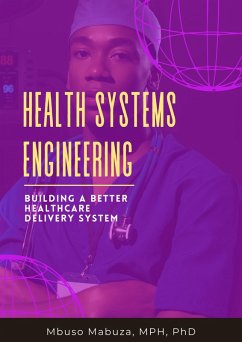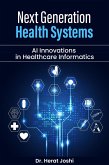The myriad of opportunities and challenges that come with rapid technological innovations in the medical and health ecosystem, warrant an urgent need to apply systems engineering techniques and skills to solve issues pertaining to healthcare service quality, patient safety, and healthcare cost, as means to improve healthcare systems performance. Health systems engineering can solve healthcare problems that no one else can.
Health systems engineering entails the application of engineering, science, management, and technological innovation to healthcare systems improvement. A successful systems engineering delivery process in healthcare should focus on defining stakeholder needs and required functionality early in the development cycle, documenting requirements, then proceeding with design synthesis and system validation while considering the complete problem. It focuses on understanding the interactions among people (patients, families, clinicians, and other stakeholders), processes (institutional, regulatory, professional ethics, etc.), and technology (medical devices and instrumentation) in the healthcare domain to formulate a systems approach to innovations that lead to improved patient outcomes.
The proposed healthcare setting should have the environmental factors desired by patients and family members as expressed by them, suggesting a need for improvements in the healthcare environment. The patient and family must be kept at the centre of the systems approach. There are no technical barriers to enabling that capability, and the payoff in terms of patient and family experience may be substantial.
Perhaps, health is too important to be left only to doctors; the healthcare consumer's well-being should be the primary consideration. The ultimate goal is to ensure that quality goals and objectives of the 21st century health system are achieved through accessible, safe, effective, patient-centred, timely, efficient, and equitable health care.
There is no doubt that very few healthcare professionals or administrators are equipped to think analytically about health care delivery as a system or to appreciate the relevance of systems engineering tool. Even fewer are equipped to work to apply these tools. With the increasing global burden of disease, and the risk of pandemics such as we have already seen with the COVID-19, there is an urgent need to develop and enhance capacity for the design and application of health systems engineering, in order to build a better healthcare delivery system. A very important issue therefore is for the educators, students and practitioners to develop a sound understanding of what health systems engineering actually means. Accordingly, there is a need for multi-skilled professionals with qualifications in health systems engineering.
This book aims to address that need. The book begins with an overview of a systems approach to healthcare. It then discusses health systems including health systems strengthening and the role of knowledge management and leadership, essential health packages, public-private partnerships, healthcare financing, and monitoring performance. Health systems engineering is discussed with a particular focus on engineering better health and care, and on how it can transform the medical and healthcare ecosystem. This book will appeal to professionals and students in medicine and healthcare, global health, public health, health economics, healthcare leadership and management, health systems strengthening and research, healthcare innovations, data analytics and health informatics, systems engineering, sustainable development, public policy, social sciences, and related fields.
Dieser Download kann aus rechtlichen Gründen nur mit Rechnungsadresse in A, B, CY, CZ, D, DK, EW, E, FIN, F, GR, H, IRL, I, LT, L, LR, M, NL, PL, P, R, S, SLO, SK ausgeliefert werden.









